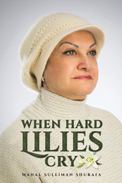
 |
In this spirited glimpse into the resolve of the human experience, Shurafa delivers a raw and authentic account of battling not one but two cancer diagnoses and the toll that it takes not only on the physical well-being but also on the mental and emotional. The vulnerability with which her words grace the page endears her to readers, yet the deafening nature of facing such a stark and sobering reality in the prime of one’s life at merely thirty-five pales in comparison to the author’s tenacity to be present for her loved ones.
From a narrative standpoint, Shurafa’s persistence in getting a biopsy, despite being cleared by her doctor multiple times, is a testament to her warrior spirit and the key catalyst for catching her breast cancer diagnosis in a timely manner. More a memoir than a biographical account, Shurafa’s writing flows seamlessly, helping the central themes of her work shine through. For instance, predicated on faith, her mindset was to control what she could and not fret about what she couldn’t. While this mindset was tested time and time again, and in the most excruciating of ways, one can characterize her efforts as nothing short of valiant.
Another subtheme that is embedded in the underlying experiences is the necessity to advocate for one’s self, which is especially magnified in her interactions with medical personnel. At every point in her health discovery and journey, Shurafa is unafraid to let her voice be heard to ensure that her peace of mind is a top priority. At the opening, the author creates the visual of an ideal family, from a loving husband, Osama, to two doting kids—Ayman and the younger Hisham. Conjure the thought of having this ripped to shreds and having to mourn the life that could have been while still needing to find a way to fully live the life that is. In one of the most innocent but poignant moments, Ayman asks Shurufa, “Mom, are you going to grow another breast?” The thought of having to explain to young children the concept or even the possibility of death is a daunting one. In the case of Ayman and Hisham, it is seeing them detach emotionally to safeguard the immense depth of pain they would feel if they lost their mother.
For Shurafa, reading the Holy Qur’an became one of the sources of her calm and healing, but even more so, the act of writing was the most defining therapeutic act. Through the prism of her writing, audiences become privy to the pure humanness of fighting through cancer and experiencing everything from fear to resolve. Seeing the author’s journey in words presents a sense of completeness, a coming full circle of sorts. Though just a metaphor, her evolution from being a soft lily who revolves her life around the love of family to a hard lily, toughened by life, always returns to the notion that the softness will remain, only now it will be on the inside. Above all else, there is something here to be gleaned for readers at all points in their lives: a type of compass that can help them find value in their existence and find their own soft lilies inside their hardened exteriors. Though the topic is heart-wrenching in nature, the manner in which Shurafa delivers it is graceful and compelling, making for an undeniable must-read.
RECOMMENDED by the US Review